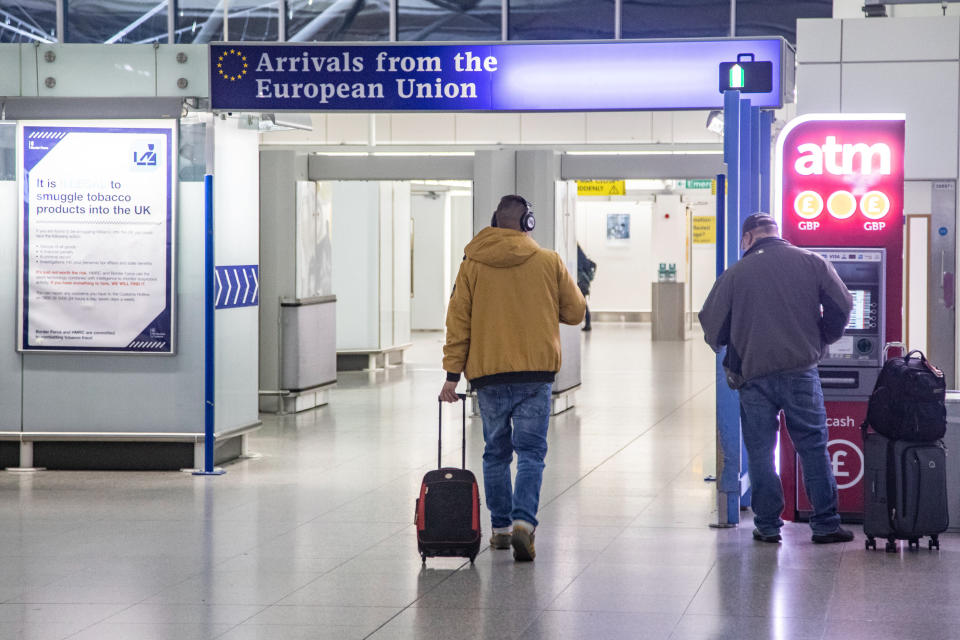Pace of EU migration to UK picked up at end of 2018

The pace that people from EU member states moved to the UK quickened in the last three months of 2018, while overall immigration to the country hit a five-year low last year, according to new statistics.
New data released on Friday by the Office for National Statistics (ONS) show that 258,000 more people immigrated to the UK than left last year, the lowest net migration figure since 2013 — and a 9% drop on 2017.
But the pace that people from other EU member states arrived quickened in the last three months of the year, with 74,000 more people immigrating than leaving in 2018 overall.
However, there was a slowdown in the number of people immigrating from non-EU countries.
Around 232,000 more non-EU citizens arrived in the UK than left in the year to December, compared to 261,000 in the year to September.
These statistics, which cover the net migration to the UK in rolling 12-month periods, are published on a quarterly basis.
Jay Lindop, who leads the Centre for International Migration at the ONS, said that long-term net migration, immigration, and emigration figures “have remained broadly stable” since the end of 2016.
But Lindop said that the pattern of migration to the UK for work has been changing, noting “long-term immigration to the UK for work has fallen, mainly driven by the decline in EU arrivals.”

 Yahoo Finance
Yahoo Finance 
